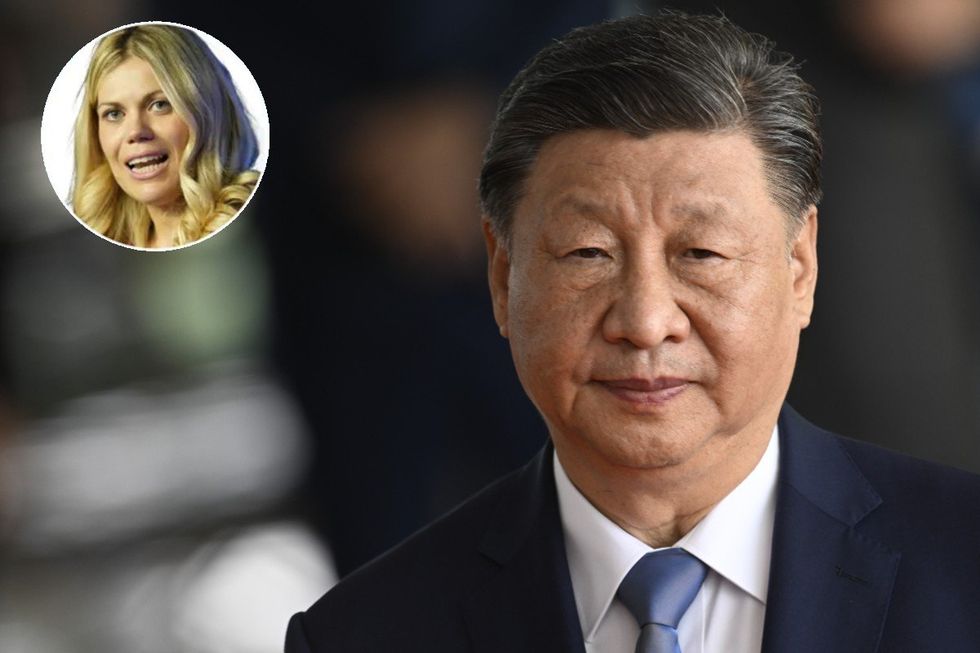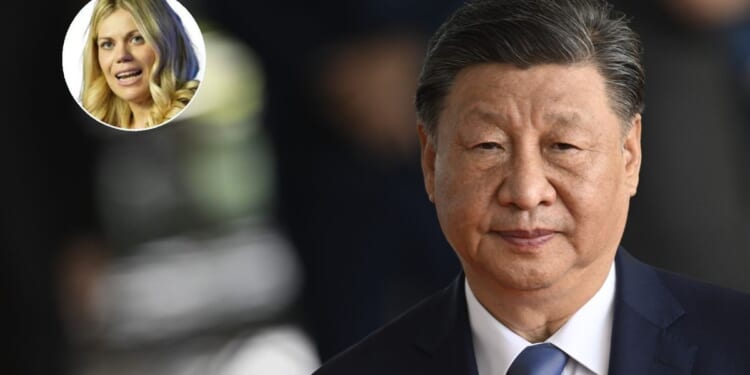
The so-called ‘Chinese spy scandal’ has dominated the news agenda for weeks.
The story of how a trial into the alleged espionage activities of two men called Christopher, is a complicated one, and the facts seem to change on a daily basis.
Christopher Cash, a former UK parliamentary researcher, and Chris Berry, a teacher, are accused of passing sensitive information to a senior member of the Chinese Communist Party (CCP).
Both men were supposed to have stood trial, but last month it emerged that the Crown Prosecution Service (CPS) had dropped the case because its lawyers no longer believe that there is a realistic chance of conviction.
The revelations have shocked Westminster, as MPs have had to come to terms not only with the fact that there may have been – and may still be – spies right in the heart of Parliament, but also that the authorities seem reluctant to do anything about it.
Trying to get to the bottom of why the prosecution was dropped is like wading through treacle.
The CPS claims that in order for there to be a reasonable chance of conviction, the case must be made that China is a ‘threat’ to the UK.
It was announced on Thursday that there will be two Parliamentary inquiries into the issue to establish the facts and find out who is to blame for the failure to bring the spying case to trial.
But whoever is responsible, this ‘scandal’ reveals some hard truths about Britain’s relationship with China, truths that we can ill afford to ignore.
Firstly, although China is not our ‘enemy’ from a military point of view – we are not fighting a conventional war with the Chinese – the CCP is undoubtedly a political adversary.
Britain is a liberal democracy, founded on respect for individual rights and limited state power.
China is an authoritarian communist regime, where individual rights and freedoms are often subjugated to what its rulers decree to be the interests of China as a whole.
There is an obvious political and philosophical clash between our two nations.
We will never be able to trust Communist China in the way we trust our Western liberal allies, such as the US and France.
Of course, the Chinese are spying on Britain, just as we are undoubtedly spying on them.
And with China’s extraordinary surveillance and technological capabilities, we should not be surprised that the Chinese are trying – perhaps successfully – to infiltrate Britain’s corridors of power.
Writing in the Spectator, political journalist Tim Shipman reports that there have been numerous incidents of Chinese and Russian data breaches at the heart of government. Shipman writes: “The most catastrophic breach came when the Chinese purchased a company that controlled a data hub used by Whitehall departments to exchange information (including on highly classified projects), enabling Beijing to steal a goldmine of secret information).”
Secondly, while Britain and China may be political adversaries, we are well-established trading partners with £99.7billion of commerce flowing between our two countries last year.
China is widely suspected of using trade to gain influence – even dominance – around the world, buying up the debt or industries of foreign nations and then holding those countries to ransom.
Across Africa, the Chinese Belt and Road Initiative has poured billions of dollars into building new infrastructure for the world’s poorest continent.
But in doing so, China has left dozens of African countries in its debt and unable to escape the CCP’s political clutches.
The Chinese are not only employing this tactic in Africa.
Just last week it emerged that Jingye, the Chinese owners of the British Steel plant in Scunthorpe, offered to waive a £1billion legal claim against the British Government in exchange for the approval of Beijing’s proposed super embassy in London.
Grave concerns have been raised about the security implications of a potential CCP listening station built directly over some of London’s most secure data cables, yet the Government is now being threatened with serious economic consequences if the embassy is not waived through.
The fact of Jingye’s ownership of British Steel is in itself proof of China’s stranglehold on Britain’s strategic industries.
Parliament had to be recalled in the summer when Jingye threatened to shut down the UK’s last remaining blast furnaces, leaving the UK dangerously dependent on foreign – i.e. Chinese – steel.
And it’s not only our steel industry that has been sold out.
The Chinese have a 33 per cent stake in the Hinkley Point C nuclear plant, and they are thought to own billions of pounds of UK debt.
In China, unlike in Western liberal democracies, there is no separation between business and government.
Chinese companies are not independent from the CCP; they are an extension of it.
The Conservatives have accused Labour of compromising national security for the sake of the economy.
They are correct, but that is exactly what has been happening for decades.
Although the last Government did push back in some areas – banning Chinese-owned Huawei from the UK’s 5G network and forcing China to relinquish its stake in the Sizewell C nuclear power station, the direction of travel is one of increasing dependence on China.
How could we have allowed this to happen?
Many in the West believed that, once China was allowed entry into the World Trade Organisation in 2001, it would soon become a wealthy capitalist country.
It was assumed that, with increased prosperity, China would inevitably undergo political transformation into a liberal democracy and an ally.
In its own way, this Western strategy was also a politically imperialist one, an attempt to spread US and EU values and systems of government around the world using trade as the vehicle.
Well, China has certainly become capitalist, and has enjoyed fifteen-fold economic growth this century, the strongest performance of any nation in the world.
But when it comes to politics, China has defied liberal expectations and remains as communist and authoritarian as ever.
Britain’s hoped-for ally has not emerged. Instead, we are waking up to the fact that we have made a catastrophic strategic error.
Britain finds itself deeply entangled with, dependent on, and indebted to a dangerous and powerful political enemy.
The Chinese are already flexing their muscles, warning that Britain will pay a high price if the super embassy plans are rejected.
If the CCP wanted to go further and, for example, prevent Britain from supporting the US in military action following a potential invasion of Taiwan, the Chinese could choose to pull the plug on these essential elements of UK infrastructure.
There would be precious little we could do about it. It is not an exaggeration to say that the Chinese could bring Britain to the verge of collapse.
The Conservative Party and others are right to say that the Government should not sacrifice our national security for the sake of good trading relationships, but that ship sailed many years ago.
Our national security has already been significantly compromised, and pulling back from Chinese trade and investment would precipitate severe economic consequences that the British public may be unwilling to accept.
But we cannot do nothing. It is unrealistic to claim that we can do without Chinese trade, but we must prevent any more of our assets and industries from falling into Chinese hands.
Ending the UK’s net zero commitments would also help to extricate us from the grip of China.
As the Telegraph’s David Blair writes: “It makes no sense to proceed with decarbonising energy and transport if that means creating new vistas of dependency by allowing China to build our renewable energy system and supply our electric vehicles.”
Whoever is at fault, the Government must find a way to ensure the trial of Christopher Cash and Chris Berry goes ahead.
When it comes to our relationship with the Chinese, Britain is currently too weak to rip the plaster off.
But little by little, we must begin to prise open the grip of the CCP.
In the long term, both our prosperity and security will depend upon it.
















